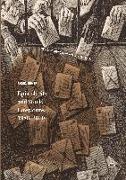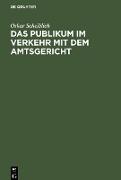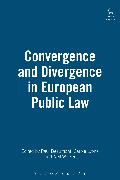Epistolarity and World Literature, 1980-2010
BücherAngebote / Angebote:
‘This book, like the literary letters it examines, is intelligently attuned to the intimate to-and-fro between author and reader, in particular what happens when this dialogue takes place across fraught historical and political lines. Addressing why novelists from across the world returned to the epistolary form at the end of the long twentieth century, Bower closely analyses an impressive range of authors to show how and why words travel from I to you.’— Dr Jonathan Ellis, Senior Lecturer, University of Sheffield, UK‘This lucid and original book explores the relationships between the epistolary novel, the world and postcolonial literature with a keen, critical eye and a nuanced concern for the material productions of texts, focusing on detailed readings as well as a wider global background. In doing so, Bower both reviews and reforms part of the field, and so this book should be read by those with an interest in the contemporary novel, postcolonialism and literary theory more generally.’— Professor Robert Eaglestone, Royal Holloway University of London, UKThis book examines the striking resurgence of the literary letter at the end of the long twentieth century. It explores how authors returned to epistolary conventions to create dialogue across national, linguistic and cultural borders and repositions a range of contemporary and postcolonial authors never considered together before, including Monica Ali, John Berger, Amitav Ghosh, Michael Ondaatje and Alice Walker. Through a series of situated readings, the book shows how the return to epistolarity is underpinned by ideals relating to dialogue and human connection. Several of the works use letters to present non-anglophone material to the anglophone reader. Others use letters to challenge policed borders: the prison, occupied territory, the nation state. Elsewhere, letters are used to connect correspondents in different cultural and linguistic contexts. Common to all of the works considered in this book is the appeal that they make to us, as readers, and the responsibility they place on us to respond to this address.By taking the epistle as its starting point and pursuing Auerbach’s speculative ideal of weltliteratur, this book turns away from the dominant trend of ‘distant reading’ in world literature, and shows that it is in the close situated analysis of form and composition that the concept of world literature emerges most clearly. This study seeks to re-think the ways in which we read world literature and shows how the literary letter, in old and new forms, speaks powerfully again in this period.
Lieferbar in ca. 20-45 Arbeitstagen




